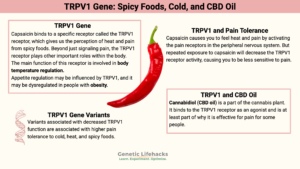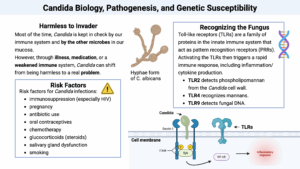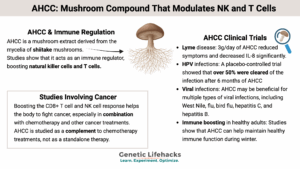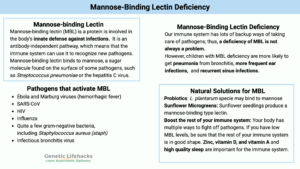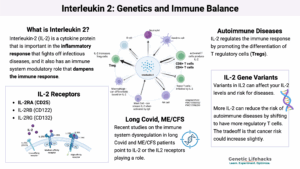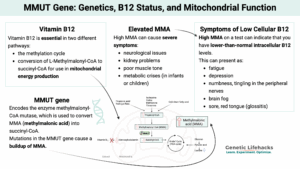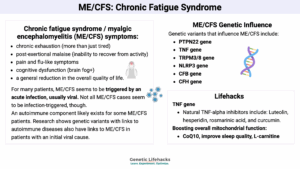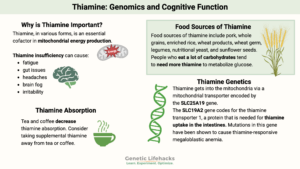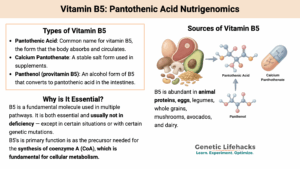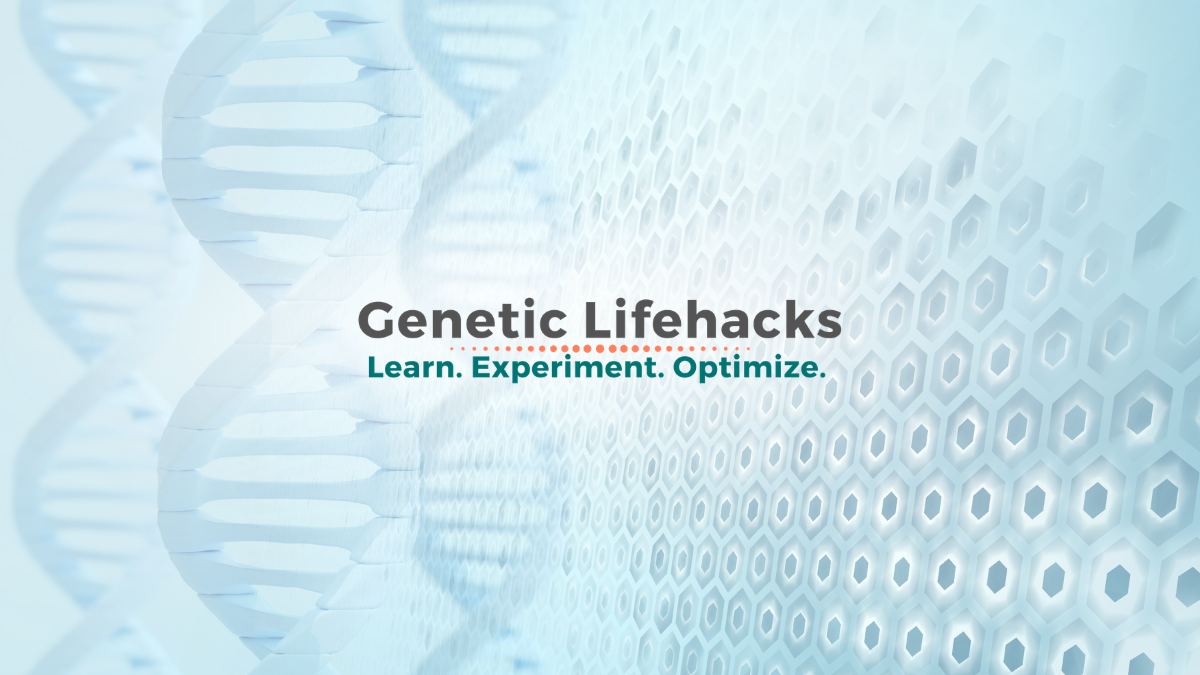
Personalized Genetic Insights from Your DNA Data
Connect to your genetic data → Get personalized insights → Take action
Genetic Lifehacks is the top site for genetic insights, with a privacy focus that is unmatched. We give you the tools so that you can use your genetic raw data:
- Use your genetic raw data from 23andMe, AncestryDNA, MyHeritage, and more.
- See your genotypes in detailed articles and in summary reports.
- View the solutions; choose what works for YOU.
Already a member? Sign in
Where do you want to start?
Latest Articles + Genotype Reports:
- TRPV1 Gene: Receptor for Spicy Foods, Sensing Cold, and CBD OilThe TRPV1 receptor is activated by capsaicin in spicy foods. But there is a lot more to this story… find out how this receptor impacts diabetes, metabolic function, and more.
- Candida Biology, Pathogenesis, and Genetic SusceptibilityLearn why genetic variants in IL‑17, TLRs, dectin‑1, MBL, FUT2, and STAT1 can make some people much more susceptible to chronic or severe Candida infections.
- AHCC: Mushroom Compound That Modulates NK and T CellsAHCC, a mushroom extract, boosts NK cells and T cells. Learn what the studies show for HPV, immune health, and chemotherapy support — plus drug interactions.
- Genetics of Mannose-Binding Lectin (MBL) DeficiencyMannose-binding lectin, also known as mannose-binding protein, is involved in the body’s innate defense against infections. Find out how genetic variants in this system increase your susceptibility to specific pathogens.
- IL-2 Genetics and Immune BalanceIL-2 dysregulation affects long COVID, autoimmune diseases, and cancer therapy response. Learn about your IL-2 genetic variants and natural ways to support IL-2.
- MMUT Gene Variants & Methylmalonic Acid: B12 Status & GeneticsMMUT gene variants affect how your body uses B12 for mitochondrial energy. Learn how MMA testing reveals intracellular B12 deficiency and which form of B12 can help.
- ME/CFS: Myalgic Encephalomyelitis / Chronic Fatigue Syndrome, Genes, Immune Pathways, and SolutionsLearn which immune, mitochondrial, and genetic pathways—NK cells, NLRP3, interferon, complement, TRP channels, and more—may increase susceptibility to ME/CFS.
- Thiamine: Genomics, Cellular Energy, and Cognitive FunctionAlso known as vitamin B1, thiamine is essential for energy production and brain function. Learn how your genes influence your need for thiamine.
- Vitamin B5 (Pantothenic Acid): Genetics, Deficiency, and Neurodegenerative DiseasePantothenic acid (vitamin B5) is essential for coenzyme A synthesis and brain energy. Learn about B5 deficiency, PANK2 mutations, and links to Alzheimer’s.
Recently updated genetic reports + articles:
Staying up to date is important! Check out these articles that have been updated with new research:
Nickel Allergy: Genetics, causes, natural solutions
Candida Biology, Pathogenesis, and Genetic Susceptibility
Alpha-1 Antitrypsin Deficiency: Genetic Raw Data, Carrier Effects, Interactions with TNF
Are Cold Sores Genetic? Who Gets Them and Why
OCD: Obsessive-Compulsive Disorder Genes
Niacin and Heart Disease: Genetic Interaction
NAT1 and NAT2: N-acetyltransferases and Phase II Detoxification
Mushroom Intolerance: Ergothioneine and the OCTN1 Gene
Explore by Symptoms, Supplements, Diet, or Pathway:
Symptoms
Supplements
Pathways & Processes
Diseases, Conditions
Lifestyle & Diet
Genes, Proteins
Hormones
Medications
Toxins
My Story…
Hi! I’m Debbie Moon, founder of Genetic Lifehacks.
When I first had my genetic data sequenced, I was both amazed and frustrated: amazed by all of the genetic research available in academic journals, but frustrated by the disconnected topics and lack of accessibility.
I started Genetic Lifehacks to bridge the gap — to help everyone understand how their genes influence their health, diet, and longevity with practical and useful information based on current research studies.
With my undergraduate degree in engineering as a foundation and a Master’s degree in Biological Sciences from Clemson University (2019), I’ve built Genetic Lifehacks into a platform that has helped over 4 million readers and 17,000 members to optimize their health through understanding their genetics.
~ Debbie
Learn more About Genetic Lifehacks

